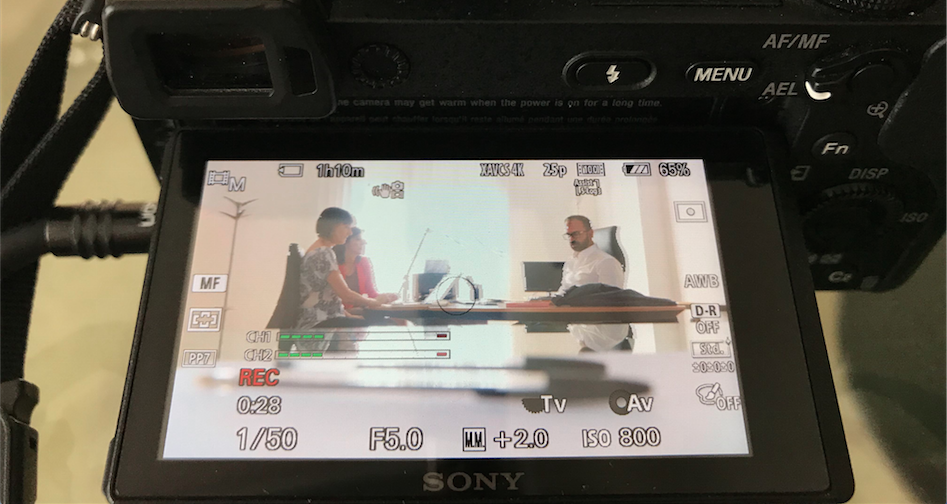I headed to Barcelona last year with a friend to attend the two week degrowth summer school, a rite of passage in the degrowth community. It takes place at the intellectual center of degrowth, the Universitat Autònoma de Barcelona (UAB) and at a degrowth-in-practice house, Can Decreix.
Read the latest issue of Resurgence & Ecologist magazine: 'Where do we grow from here?'
We travelled there slowly, by ferry and train. We discussed degrowth. On the ferry we read a paper by Blühdorn et al (2018) titled,
'The Social Theory Gap in Narratives of Radical Change'. It made us somewhat disillusioned with the narrative of degrowth and its potential for a social ecological transformation. The movement seemed to be missing a key element: how to achieve systemic change.
Strategy
We took this impression with us through the summer school and worked with colleagues there to make a short presentation on the need for a re-consideration of the role of strategy in the degrowth movement.
We developed our argument that degrowth suffers from strategic-interderminism. This means that there are many strategies but all strategies are valued equally in the movement, without any criteria for evaluating them.
However, clearly some strategies fail while others succeed, and it’s the responsibility of degrowth scholars and practitioners to better understand and investigate why and how strategies differ in their outcomes across contexts (e.g. sectoral, spatial, scalar, etc.). This culminated in a short and somewhat convoluted blog post on degrowth.info, which then became a
blog series.
Back to Vienna last summer, I and the broader degrowth-community of academics and activists discussed applying for the call to host the 2020 international degrowth conference. We were new to the field, all still struggling through our Masters theses, but this did not deter us. An application was hastily written and sent off.
Then, a few months later I travelled with friends slowly to the international degrowth conference in Malmö. This time taking a bike tour through Northern Germany and Denmark on the way. Our friend who earlier that year took the ‘pilgrimage’ with me to the summer school did not join for the conference, he was increasingly disillusioned with the possibility of degrowth. We went to Malmö to represent the Vienna conference organizers and make a short presentation of our argument on the need for strategy in the degrowth movement.
Deliberation and openness
In Malmö, we had a casual dinner with some members of the Support Group, a small body of representatives from degrowth conference organizers. We ate, shared our ideas, and happily saved the left-overs from the buffet - maybe out of eco-consciousness or just out of mere hunger.
The Support Group was excited about our application but asked us if we could host a thematic conference instead of the international conference. This was to reduce the feeling of competition between the applicants and to make possible the first international conference in an English speaking country.
We agreed, and it was informally decided that in 2020 both an international conference would take place in Manchester and a thematic conference in Vienna. Such openness and consideration of the larger movement was simply cool.
We returned to Vienna with the informal mandate to organize a thematic conference on a theme of our choosing. Then a process of deliberation and ideation began.
At this point, my colleague and I sensed a chance to bring forward our earlier critique, that degrowth lacked a comprehensive consideration of strategies in its understanding of transformation. We proposed the thematic focus on strategies. The topic was appealing to many of the conference organizers as well as the Viennese degrowth community, and consensus was quickly reached.
Strategies for transformation
The official conference title is fixed:
Degrowth Vienna 2020: Strategies for Social-Ecological Transformation.
The group of organizers, some fixed and some more fluid, began discussing the theme, organizational structure of the team, competencies of working groups, the role of plenaries, etc. We had many beers, pizzas, and socials to help the process along.
It was interesting: when new people joined they often wanted to renegotiate the structures as they looked for their role and place in the team, and to put it in their own ideas and approaches. It was often chaotic and exhausting.
Some people were called out for not listening to new ideas while others disliked the important but tedious discussion of decision making mechanisms. Ultimately the process was long but we rewarded with an enriched common understanding of what we, as a whole, wanted the conference to be.
This common understanding became the foundation for organizing to begin, the working groups to form, new members to be recruited, the organizing team to be expanded, and - to put it simply - to replace talking by doing. People from throughout Vienna’s vibrant community of socially and ecologically minded academics, activists, organizers, and artists joined the conference organizing team and brought new energy.
Achievements
What has become clear through the organizing process thus far, is that Vienna is one of the emerging ‘centers’ of the degrowth movement in Europe. The various communities of artists, academics, practitioners, and activists who are passionate about degrowth and social ecological transformation greatly increases the potential of this conference.
So far, we have given several workshops in the last months to gather more activist and practitioner insights on strategy. We also hosted a recruitment event to introduce the conference to new people. We have created a
simple website that will become much more. We applied and received funding and created paid positions on the organizing team. We secured a venue and imagined who could offer a keynote on the public opening night.
Additionally, we have started a thorough outreach process to bring in civil society actors active in the field of degrowth or social-ecological transformation, with the aim of increasing synergies between academics and practitioners. We have considered catering options and the prioritization of vegan, local and/or rescued food. We are cooperating with the University of Applied Arts Vienna to include an arts program that both supports exchange between participants and transfers results of the conference to the wider public.
We've also created a tentative program and drafted a call for papers, which will be circulated soon. And we have fixed a conference date: 29 May - 1 June, so we hope to see you there.
Looking forward
We know that we have lots of work in front of us. But with the network that we’re slowly building up and the strong group of organizers that formed around the conference, we are confident and excited.
We are looking forward to the input of all the actors involved on strategies and hope for both a contribution for the degrowth movement to narrow the gap of knowledge on how to reach degrowth, and to further a social-ecological transformation in practice.
The conference is organized by a few coordinators, an advisory board of academics and various institutions, and numerous volunteers. They have all worked together tirelessly to advance the conference organizing process over the last year. Without everyone’s ongoing efforts this conference would not be possible.
If you would like to contribute to or support the conference in anyway,
you can contact us.
This post is republished from The Ecologist. Read the original article here.

